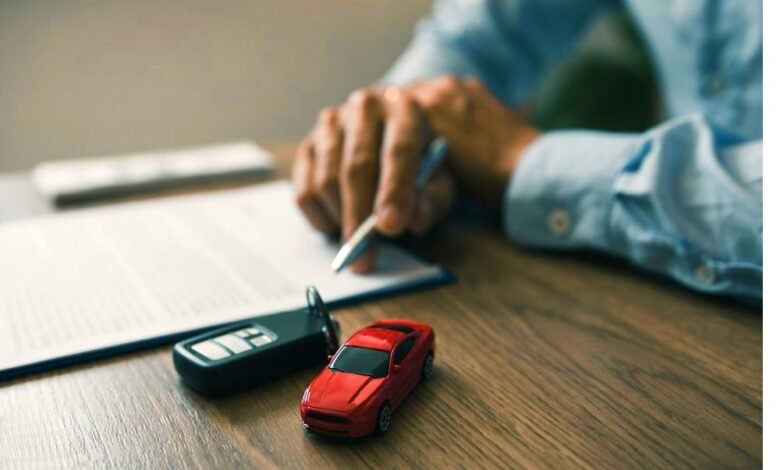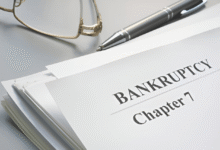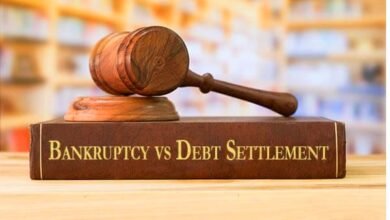Bankruptcy and Auto Loans: Navigating Vehicle Repossession

Bankruptcy is a complex legal process that can profoundly impact various aspects of an individual’s financial life. One area where its effects are keenly felt is in auto loans. In this article, we’ll delve into the intricacies of bankruptcy and its relationship with auto loans, focusing on the challenges and solutions related to vehicle repossession.
Understanding Bankruptcy
Before exploring the connection between bankruptcy and auto loans, it’s essential to understand what bankruptcy entails. Bankruptcy is a legal proceeding that offers individuals or businesses a fresh start by relieving them of certain debts. There are different types of bankruptcy, with Chapter 7 and Chapter 13 being the most common for individuals.
Auto Loans and Bankruptcy
Auto loans are often a significant part of an individual’s financial portfolio. When facing bankruptcy, the treatment of these loans becomes a critical consideration. The type of bankruptcy filed can influence the fate of existing auto loans and the potential for acquiring new ones.
Vehicle Repossession
Vehicle repossession is a daunting prospect for anyone with an auto loan. It occurs when a lender takes back possession of a vehicle due to non-payment. However, bankruptcy can play a crucial role in preventing repossession or mitigating its consequences.
Chapter 7 Bankruptcy and Auto Loans
Chapter 7 bankruptcy, often called liquidation bankruptcy, involves the sale of a debtor’s non-exempt assets to repay creditors. While this may seem alarming for auto loans, some nuances can work in favor of the debtor.
In a Chapter 7 scenario, the debtor may have the option to surrender the vehicle, discharge the remaining debt, and move forward without the burden of the auto loan.
Chapter 13 Bankruptcy and Auto Loans
Chapter 13 bankruptcy, on the other hand, allows debtors to reorganize their debts into a manageable repayment plan. This can be particularly beneficial for auto loans, enabling catching up on missed payments and preventing repossession.
The court-approved repayment plan under Chapter 13 may include the auto loan, allowing the debtor to retain possession of the vehicle while satisfying the debt over time.
Options for Keeping Your Vehicle
Preserving your vehicle during bankruptcy requires strategic planning. Open communication with lenders, negotiation for more favorable terms, and entering into reaffirmation agreements are avenues to explore.
Reaffirmation agreements allow debtors to continue making payments on the auto loan, effectively excluding it from the bankruptcy discharge. This can be a lifeline for those who depend on their vehicles for work or daily activities.
Read More: Life After Bankruptcy: Rebuilding Your Financial Reputation
Rebuilding Credit After Repossession
In the unfortunate event of vehicle repossession, the journey towards rebuilding credit begins. Responsible financial management, timely payments on remaining debts, and establishing a positive credit history are essential steps toward regaining financial stability.
Common Misconceptions
There are several misconceptions surrounding bankruptcy and auto loans. It’s crucial to dispel myths and clarify what individuals can realistically expect during and after the bankruptcy process.
Seeking Professional Advice
Navigating the complexities of bankruptcy and auto loans requires expert guidance. Consulting with a bankruptcy attorney can offer tailored solutions based on individual circumstances, ensuring the best possible outcome.
Bankruptcy’s Long-Term Impact
While bankruptcy provides immediate relief, its long-term impact on credit cannot be ignored. Understanding the implications and actively planning for financial recovery are vital components of the post-bankruptcy journey.
Success Stories
To inspire those facing auto loan challenges in bankruptcy, sharing success stories of individuals who have overcome similar situations can provide hope and motivation.
Read More: Bankruptcy and Retirement: Planning for the Future
Conclusion
In conclusion, the interplay between bankruptcy and auto loans is intricate, with options and challenges unique to each individual. If you find yourself at the crossroads of financial distress and vehicle repossession, seeking professional advice and exploring the available legal avenues are crucial steps toward a brighter financial future.
FAQs
Can I keep my car if I file for bankruptcy?
The possibility depends on the type of bankruptcy and individual circumstances. Consult with a bankruptcy attorney for personalized advice.
How long does a bankruptcy stay on my credit report?
The impact of bankruptcy on your credit report varies but generally lasts seven to ten years.
Are all debts discharged in bankruptcy?
Not all debts may be discharged. Specific obligations, like child support and tax debts, may survive bankruptcy.
Can I get an auto loan after bankruptcy?
While challenging, it’s possible to obtain an auto loan after bankruptcy. Lenders specializing in such situations may offer options.
What is a reaffirmation agreement, and is it advisable?
A reaffirmation agreement is a legal contract to continue paying a debt despite bankruptcy. Its advisability depends on individual circumstances; consult with an attorney for guidance.












One Comment